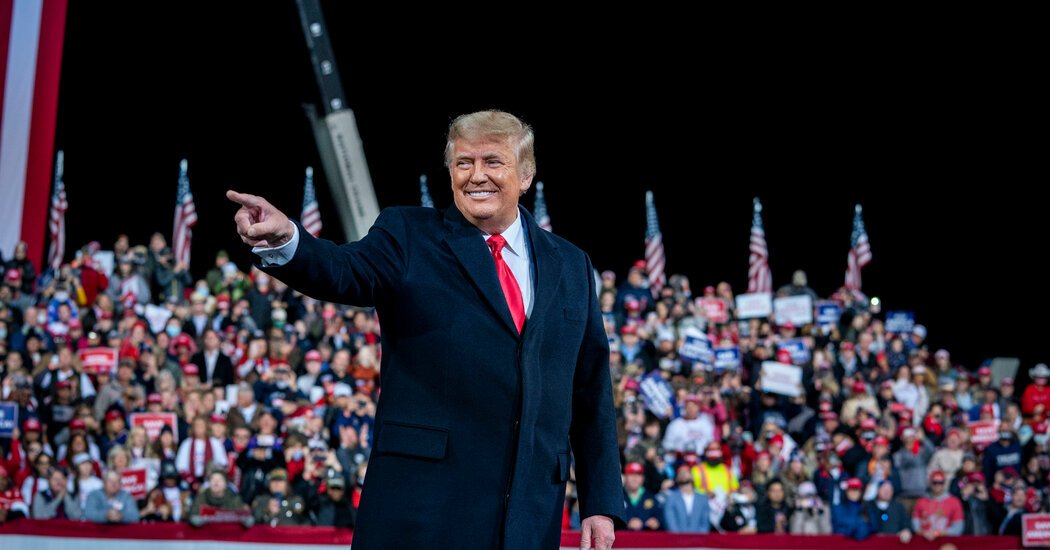
In a stunning political comeback, Donald Trump has won the U.S. presidential election, defeating Kamala Harris in a race that is sure to reverberate around the world.
Trump’s victory is all the more remarkable given the turbulent nature of his campaign, which was marked by an unprecedented criminal conviction, a near-assassination attempt, and fierce criticism from his former chief of staff, who called him a “fascist.” Despite these challenges, the polarizing Republican’s triumph followed one of the most contentious elections in modern U.S. history.
“It’s a political victory like this country has never seen before,” Trump declared to supporters at a victory event in Florida.
Vice President Harris, who entered the race in July after President Joe Biden’s surprise withdrawal, ran a centrist campaign focused on condemning Trump’s divisive rhetoric and his use of overtly racist and sexist language.
However, Trump’s warnings about immigration and his embrace of isolationism resonated with voters struggling under the weight of a post-COVID economy and eager for a shift away from the policies of the Biden administration.
Though the race remained nail-bitingly close for much of the night, the results came in faster than expected, with Trump securing key swing states including Georgia, North Carolina, and Pennsylvania, delivering a decisive win.
Donald Trump has made history as the first president in more than a century to secure a non-consecutive second term. He also becomes the first individual to be elected while serving as a convicted felon, with sentencing for fraud set to take place in a New York court on November 26.
At 78 years old, Trump is poised to break another record: he will become the oldest sitting president in U.S. history, surpassing Joe Biden, who is set to step down in January at the age of 82.
Impact on foreign policy
The US dollar surged and bitcoin hit a record high while most equity markets advanced, with traders betting on a victory for Trump as the results rolled in.
But turmoil likely lies ahead.
Trump’s victory comes with his promise of radical policy shifts – not just at home but also abroad, where his unrestrained isolationist and nationalist “America First” stance is likely to have enormous consequences.
He has repeatedly suggested he would end the conflict in Ukraine by pressuring Kyiv to make territorial concessions to Russia, and his threat of mass deportations of illegal immigrants has stirred deep concern in Latin America.
He also returns to the White House as a climate change denier, poised to dismantle his predecessor Biden’s green policies and jeopardize global efforts to curb human-caused warming.
Even before Trump’s stunning victory was fully confirmed, foreign leaders rushed to send congratulations.
These included longtime Trump allies, Israeli Prime Minister Benjamin Netanyahu, Indian Prime Minister Narendra Modi, and Turkish Prime Minister Recep Tayyip Erdogan.
Ukrainian President Volodymyr Zelensky also reached out to congratulate Trump, expressing concern about the potential reduction in U.S. military aid once President Biden leaves office. Zelensky described Trump’s “impressive victory” and voiced hope that it would help Ukraine achieve a “just peace.”
NATO Secretary General Mark Rutte also commented on Trump’s win, stating that despite the president’s past criticisms of the alliance, his leadership would ultimately make NATO “stronger.”
British Prime Minister Keir Starmer and French President Emmanuel Macron were among the other leaders sending their congratulations. Macron, in particular, emphasized his desire to collaborate with Trump “with respect and ambition” in the years ahead.
Showman’s instinct
Despite his fiery rhetoric of political revenge against domestic enemies and harsh criticisms of international allies, Donald Trump remains notoriously unpredictable when it comes to translating his words into actions.
His campaign rallies were often filled with grievances, insults, and misinformation, showcasing extreme language. Yet, he also found ways to capture positive attention, leveraging viral moments that played to his everyman persona and showman instincts—like his drive-thru appearance at McDonald’s or an impromptu press conference from a garbage truck.
Trump’s campaign focused on promises of tax cuts, deregulation, and the most significant increase in import tariffs in nearly a century, all aimed at spurring economic growth and revitalizing American manufacturing. These policies came despite warnings of potential trade wars and rising costs for U.S. consumers.
While his more traditional policy messages were often overshadowed by his use of coarse language and violent imagery, his combative style resonated deeply with his loyal base, who viewed him as an outsider in Washington. His hard-line stance on immigration and outreach to working-class voters struggling with post-COVID inflation also gained him significant traction.
When Vice President Kamala Harris entered the race in July, replacing President Biden, she quickly narrowed the polling gap that Trump had widened. Her campaign message of unity, focus on abortion rights, and warnings about the threat Trump posed to democracy seemed to strike a chord, as evidenced by a massive surge in fundraising that far outpaced Trump’s efforts.
Ultimately, however, Harris fell short of making history as the first Black woman elected to the White House.



















